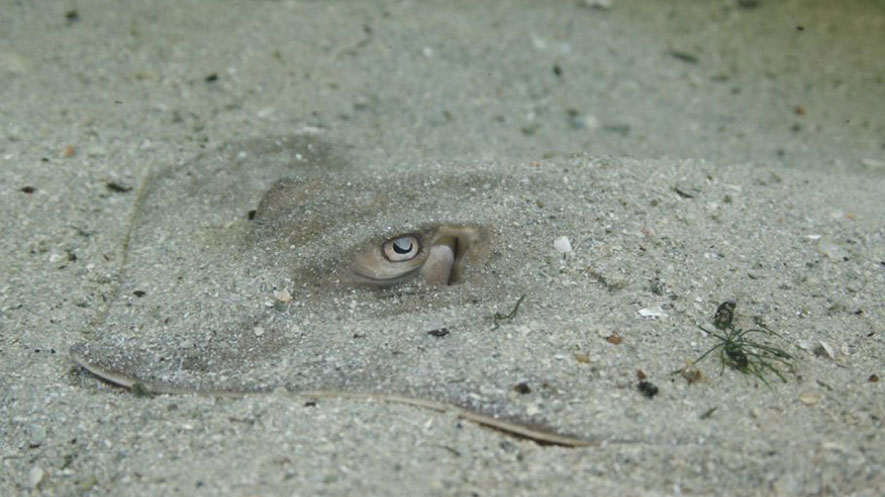It has been eight years since the Deepwater Horizon offshore rig spilled five million barrels of crude oil into the Gulf of Mexico, making it the largest accidental oil spill in history. However, the dramatic effects of crude oil pollution on marine organisms continues to this day, and a new study by researchers at Florida Atlantic University has discovered that ten million gallons of oil locked in the sediment is now impairing the sensory organs of Atlantic stingrays (Hypanus sabinus).
Co-authors Stephen M. Kajura and Eloise J. Cave who published their results this month in the journal Scientific Reports, decided to focus on the effects of crude oil on the olfactory organs of vertebrates, an area never studied before. This sensory system is an important one, particularly in elasmobranchs (sharks, skates, and rays) with up to one-third of their brains being dedicated to olfactory processing. “Elasmobranchs are renowned for their well-developed sensory systems, which are critical to alert them of the presence of predators, prey, mates, and unfavorable environmental conditions. Any impairment of these sensory systems could have a damaging effect on their survival and fitness," said Kajiura.
Eloise J. Cave developed an electrophysiological assay to test the responses of stingrays being held in oil-treated water compared to those being kept in clean water. They found that the olfactory system of the rays was significantly affected after just 48hrs of exposure to environmentally relevant concentrations of crude oil, with responses to any stimuli being cut by almost half.
The researchers believe that one of the causes for this may be because the oil is producing more mucus, thereby acting as a barrier and creating a larger distance for any odors to reach their receptor sites. "Unlike other sensory systems in which the receptor cells are not in immediate contact with the environment such as the eye, inner ear, lateral line, and electroreceptors, the chemo-sensory cells of the olfactory organ are directly exposed, through the mucus, to the seawater," said Kajiura. “This impairment of olfactory function could reduce the ability to detect prey, predators, and mates, thus resulting in a detrimental impact upon fitness. A decrease in the fitness of the organism could contribute to a population level decline which would create ecological imbalances lower in the food chain.”
Although this study focused on a coastal species, the authors warn that deep-sea elasmobranchs may be particularly at risk from oil pollution because the low temperature of their habitat means that they have a much slower metabolic rate than shallow water species and therefore might metabolize crude oil at a slower rate.
“Under field conditions, animals are likely to encounter variable exposure concentrations, which may be higher or lower than the concentration used in our study," said Kajiura. "This acute exposure has the potential to induce other physiological responses, potentially compounding the adverse effects of the altered olfactory function. Even if the oil does not cause immediate or direct death, sub-lethal effects could still reduce fitness or contribute to premature death."
By Ellis Moloney
Cave, E., & Kajiura, S. (2018). Effect of Deepwater Horizon Crude Oil Water Accommodated Fraction on Olfactory Function in the Atlantic Stingray, Hypanus sabinus. Scientific Reports, 8(1). doi: 10.1038/s41598-018-34140-0
Funding for this project was provided by ABT Associates (formerly, Stratus Consulting Inc.) under subcontract agreement S161-2S-1864.



